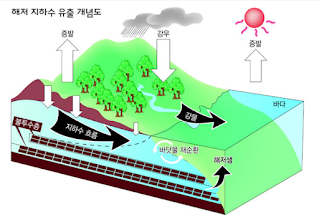Unraveling the Ripple Effect: Earthquake in Japan and the Ripple Effects on Groundwater Levels and International Relations
In a recent study, the seismic waves from a magnitude 7.6 earthquake in Japan's Noto Peninsula stirred significant groundwater fluctuations in South Korea. The Mungyeong Groundwater Observatory reported a rapid 107-centimeter water level change within minutes, prompting concerns about storage facilities, water quality, and ground stability.
Navigating Japan's Controversial Decision: A Global Perspective
Japan's decision to discharge radioactive contaminated water into the ocean has ignited international discussions. Japanese environmental organizations, members of the public, and experts have challenged the safety claims. Meanwhile, Hong Kong, a significant market for Japanese agricultural and seafood products, has threatened to restrict imports without an international agreement.
International Pressure and Japan's Response
Facing opposition from neighboring countries and its own citizens, Japan proceeded with the discharge. South Korea's Prime Minister Han Deok-soo opposed the move, emphasizing the need for scientific verification. The Hong Kong government, backed by international pressure, insists on detailed studies, scientific evidence, and international consensus before accepting the safety review report from the International Atomic Energy Agency.
Impact on Consumer Behavior
The anxiety surrounding Fukushima's contaminated water discharge has triggered a surge in consumer stockpiling, particularly in dried fish and salt. Seafood-related businesses fear losing customers amid difficulties distinguishing between Japanese and domestic products.
Frequently Asked Questions (FAQ):
Q: What caused groundwater fluctuations in South Korea? A: A magnitude 7.6 earthquake in Japan's Noto Peninsula impacted groundwater levels, leading to observed fluctuations in South Korea.
Q: Why is there opposition to Japan's discharge of radioactive water? A: Concerns about environmental impact, health risks, and international consensus have sparked opposition from various groups and countries.
#EarthquakeImpact, #FukushimaControversy, #InternationalEnvironmentalConcerns, #GroundwaterFluctuations, #FoodSafetyDebate

